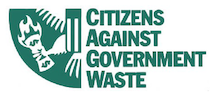Importation Won’t Save Money, warn Citizens Against Government Waste
 This editorial by Elizabeth Wright was published in The WasteWatcher blog on July 31, 2019. Wright is the Director of Health and Public Policy for Citizens Against Government Waste.
This editorial by Elizabeth Wright was published in The WasteWatcher blog on July 31, 2019. Wright is the Director of Health and Public Policy for Citizens Against Government Waste.
Importing Foreign Drugs Will Not Lower Drug Costs
This morning, the Department of Health and Human Services (HHS) announced a Notice of Proposed Rule Making (NPRM) to review two potential ways to allow “safe” importation of certain drugs originally intended for foreign markets. No secretary of Health and Human Services or commissioner of the Food and Drug Administration (FDA) under a Republican or Democratic administration has ever confirmed that importing pharmaceuticals would keep Americans safe from dangerous counterfeit drugs, including the opioids that have caused so much destruction across our country. Yet, it appears this administration is willing to take the chance.
One option would allow HHS and FDA to use their authority under the Federal Food, Drug, and Cosmetic Act to authorize pilot projects, developed by the states, wholesalers, or pharmacists and submitted for government review, to import certain drugs from Canada that are versions of FDA-approved drugs manufactured consistent with the FDA approval process. This option would include conditions to ensure that importing the drugs would not pose any additional risks since it would be leaving the closed U.S. drug distribution and then re-entering at another point.
The other option, which is both strange and convoluted, would allow manufacturers to import their versions of FDA-approved drugs that they sell in foreign markets back into the U.S., but at a lower price since doing so would enable them to go around any contracts they may have in the domestic supply chain. This seems to encourage government-sanctioned violations of binding contracts.
Citizens Against Government Waste appreciates the concern over drug prices, but these proposals would fail to effectively address the problem, expose Americans to counterfeit and adulterated drugs by encouraging unscrupulous actors to get more involved in drug importation, and hurt U.S. biopharmaceutical research and development. It also provides no estimate of the cost to set up a new and parallel bureaucracy to the FDA oversight process, which certainly should not be truncated to try to lower the price of drugs and will undoubtedly cost far more to implement than any savings accrued.
Most importantly, the plan ignores Canadian warnings that the country has no interest in supplying Americans with their drugs, citing concerns over shortages.
The U.S. already uses government price controls in public pharmaceutical benefit plans such as in Medicare Part B; the coverage gap in Medicare Part D; the 340B drug discount program; Medicaid; and in the Department of Veterans Affairs. These price-controlled programs represent approximately 40-45 percent of total pharmaceutical expenditures and have distorted the entire pharmaceutical marketplace, driving up drug costs in the private healthcare sector.
There is no need for more government involvement in the pharmaceutical market as the HHS proposal would do. Instead, the administration and Congress should be concentrating on finding more ways to bring free-market incentives and competition into public-sector drug benefit plans, speed up generic drug approvals and modernize clinical trial designs to encourage competition, and write better trade deals to ensure foreign countries pay a fair share of U.S. funded biopharmaceutical research and development instead of free-riding on our discoveries.